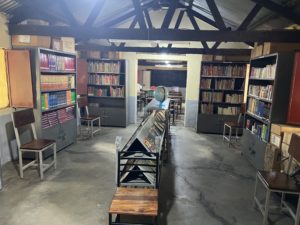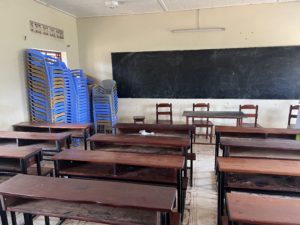South Sudan
South Sudan
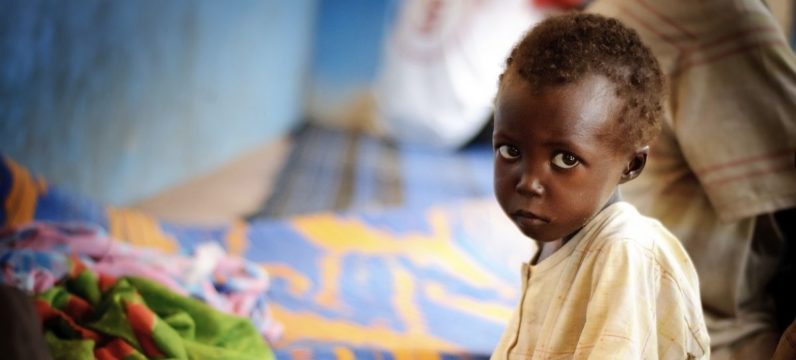
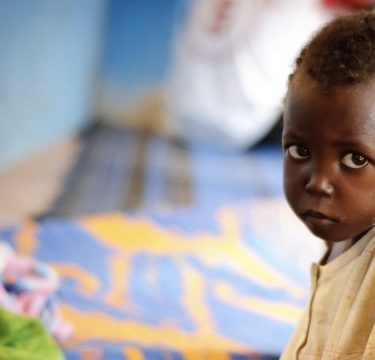
The PCPM Foundation has been providing assistance in South Sudan since 2012. For several years now, thanks solely to donations from Polish benefactors, we have been organizing regular purchases and transport of therapeutic food for malnourished children, as well as supporting the Supplementary Feeding Center in Gordhim, in the northwestern part of the country.
The staff of the center we support, in addition to treating severely malnourished patients, fight local diseases. They conduct trainings for residents of nearby villages on crop cultivation and hygiene. The transport of therapeutic food reaches South Sudan always before the so-called “hunger gap,” a period of the year when food is most scarce. This means that despite hard work in the fields, mothers are unable to feed their children.The situation in South Sudan is catastrophic. The country is facing the highest levels of food insecurity and malnutrition since gaining independence more than a decade ago. Approximately 9.4 million people, or more than 70% of the population, including nearly 5 million children, are in need of humanitarian assistance.
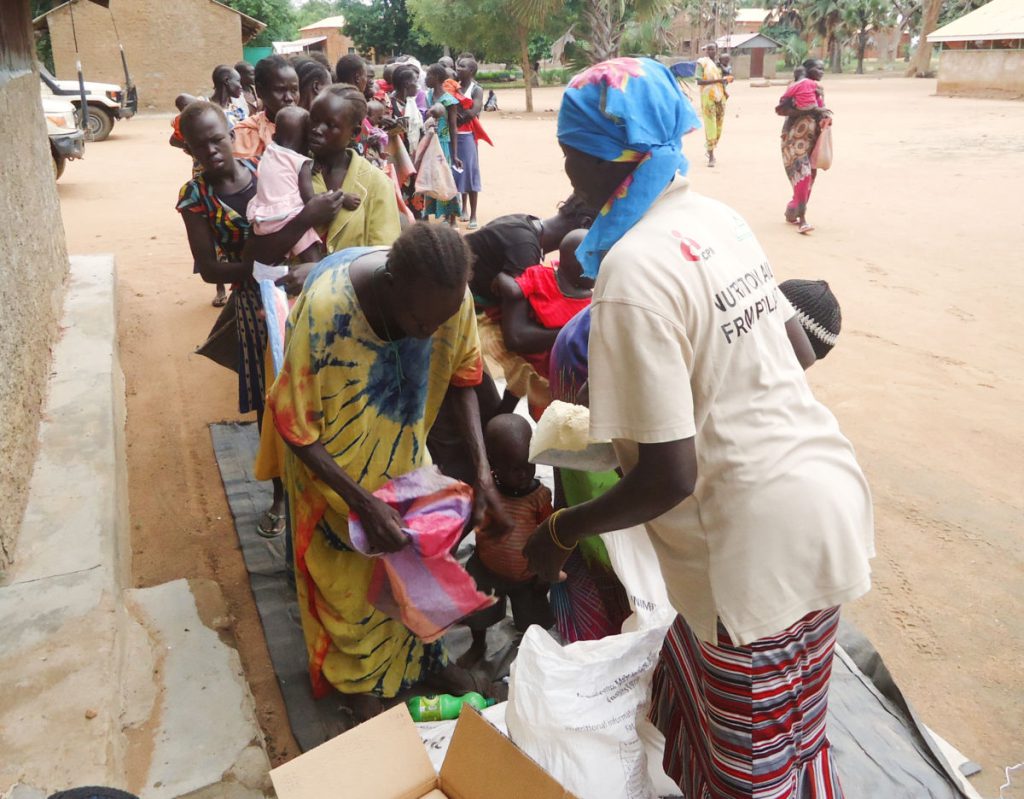
In 2023, a shocking 52% of children seeking help at the Gordhim Supplementary Feeding Center were severely malnourished. This crisis is worsening annually.
Despite purchasing 300 cartons (45,000 servings) of therapeutic food in 2024, a mid-year resupply was urgently needed due to a surge in severely ill children.
.
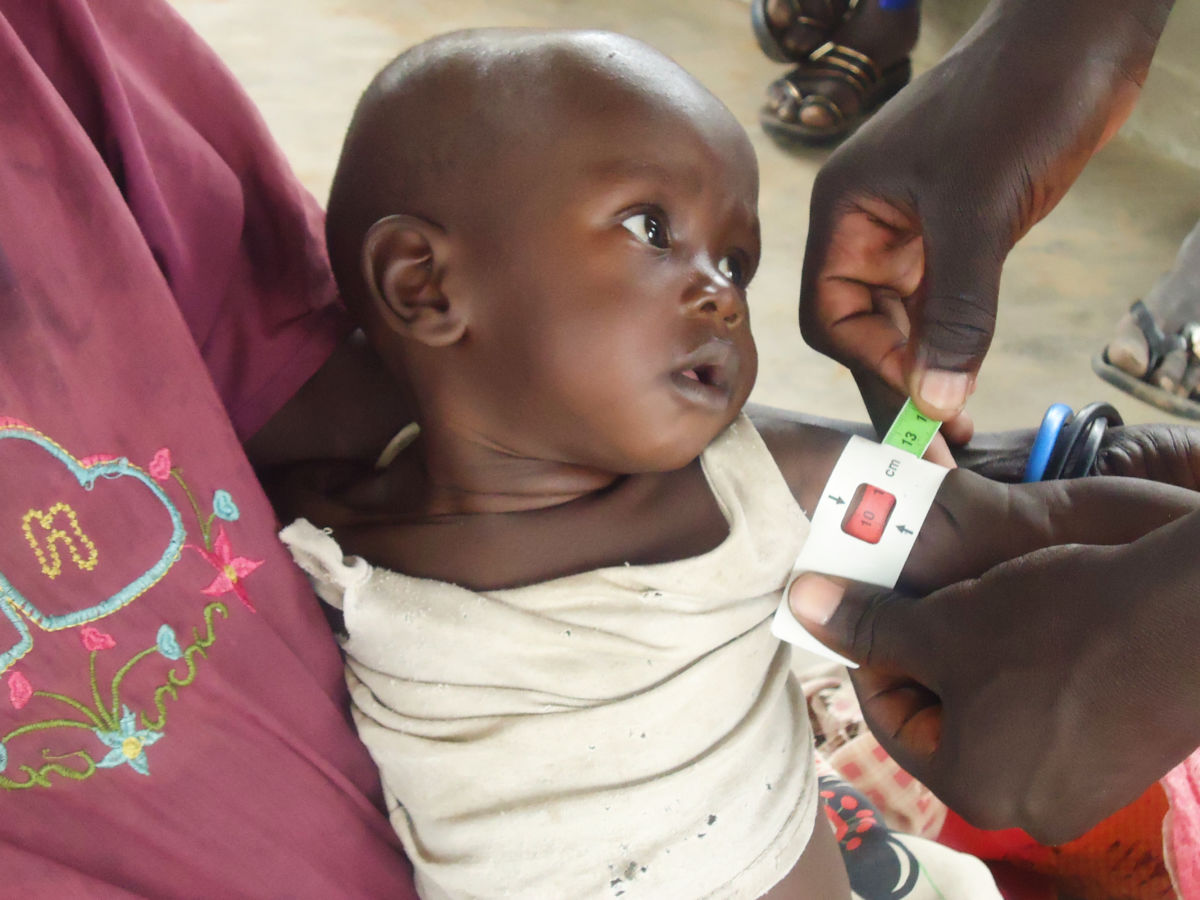
Malnutrition in children is assessed by measuring their mid-upper arm circumference (MUAC). A healthy 5-year-old child’s MUAC should be at least 13 cm. A concerning 12% of the children examined were severely malnourished, with MUACs below 11 cm.
Childhood is a critical period for growth and development, making adequate nutrition essential. Malnutrition during this stage can have devastating long-term consequences, including impaired physical growth, cognitive development, and immune function. Other potential effects include metabolic disorders, visual impairments, and stunting. If these children survive the current food crisis, their long-term health and ability to contribute to society will be significantly compromised.
Staff at the PCPM-supported center provide medical treatment for severely malnourished patients, while also working to prevent and control diseases. They further contribute to the community by conducting training programs on sustainable agriculture and hygiene practices for residents of neighboring villages.
The solution to malnutrition lies in therapeutic food. This peanut-based paste is fortified with vital nutrients, vitamins, and minerals. A single serving packs a powerful 500 calories. Just three servings per day for a week can help a child gain a full kilogram.- Therapeutic food is ready to eat as soon as it is opened.
- This is important because, where we send it, very often there are no conditions for preparing another meal. There is a shortage of clean water, for example.
- The cost of one portion of such food is only PLN 2.1. This means that for a small amount, you can buy enough sachets to save the lives of children suffering from malnutrition. This is a real help.
- Such food has a sufficiently long shelf life. We send transport to South Sudan once a year, thus saving on transport and logistics costs, so we can deliver more of the same product
Mothers there would probably prefer to prepare something for their children themselves. But they often don’t have the resources to do so. Conflicts and droughts alternating with torrential rains in the country mean that even basic foodstuffs are hard to come by or are not available for long periods.
In 2007, PCPM embarked on an ambitious project to build the Usratuna School in Juba. Fast forward 17 years, and the school has blossomed into a thriving educational hub serving over 1000 students.
When PCPM first started its operations in Juba, the city was part of Sudan. Back then, the concept of a proper school building was a luxury. Lessons were often held in makeshift huts under the scorching Sudanese sun.
Under the leadership of PCPM’s vice president, Adam Świerczyński, the organization transformed the educational landscape of the region. Today, the Usratuna School boasts four modern buildings, a library, and a student population of 1027, with class sizes ranging from 60 to 80 students.
